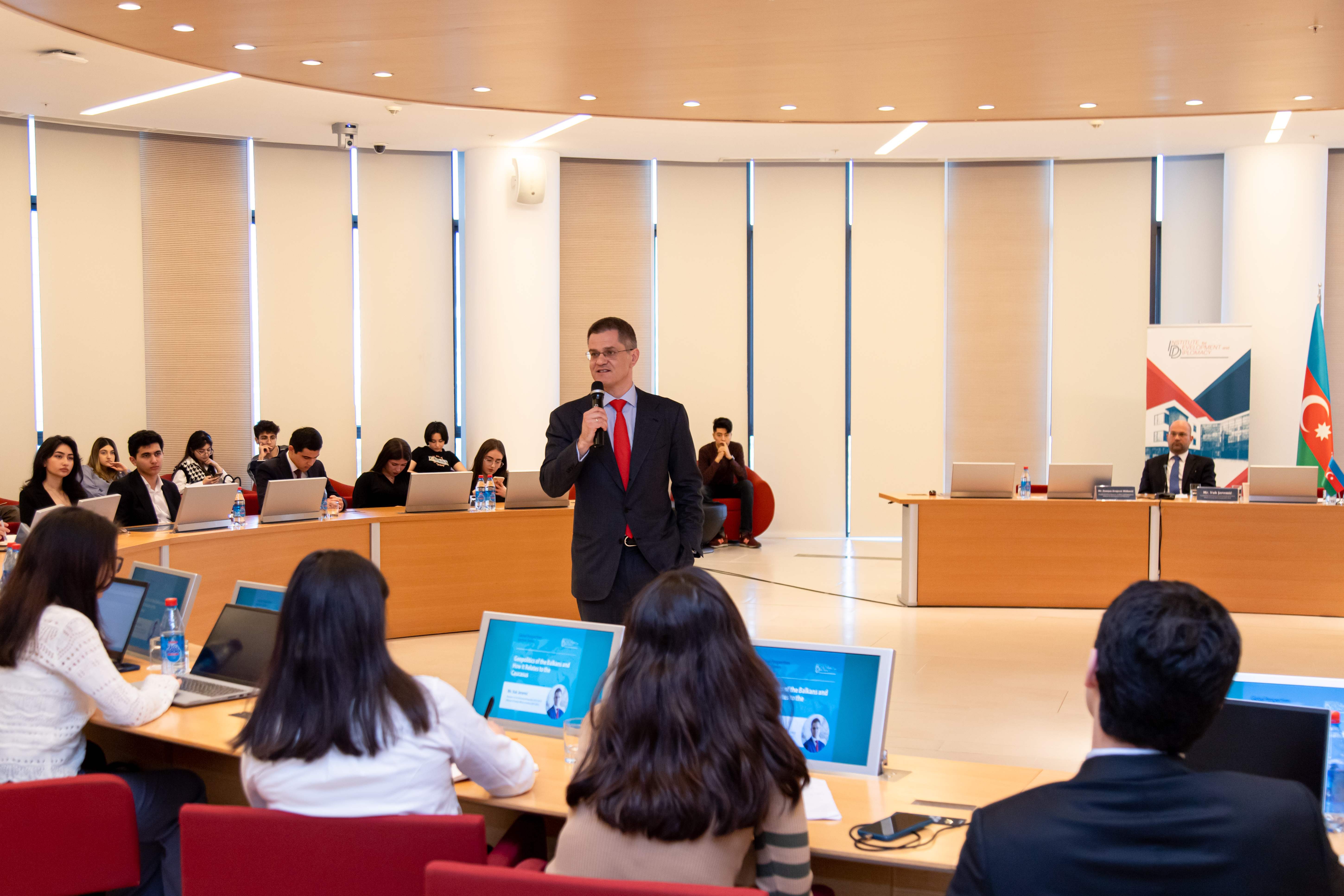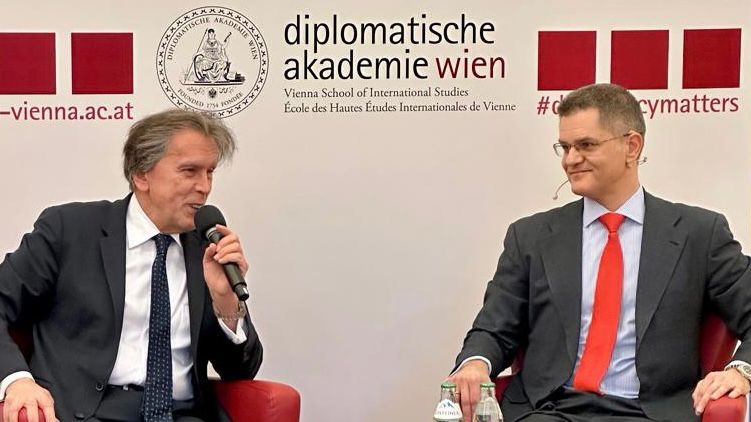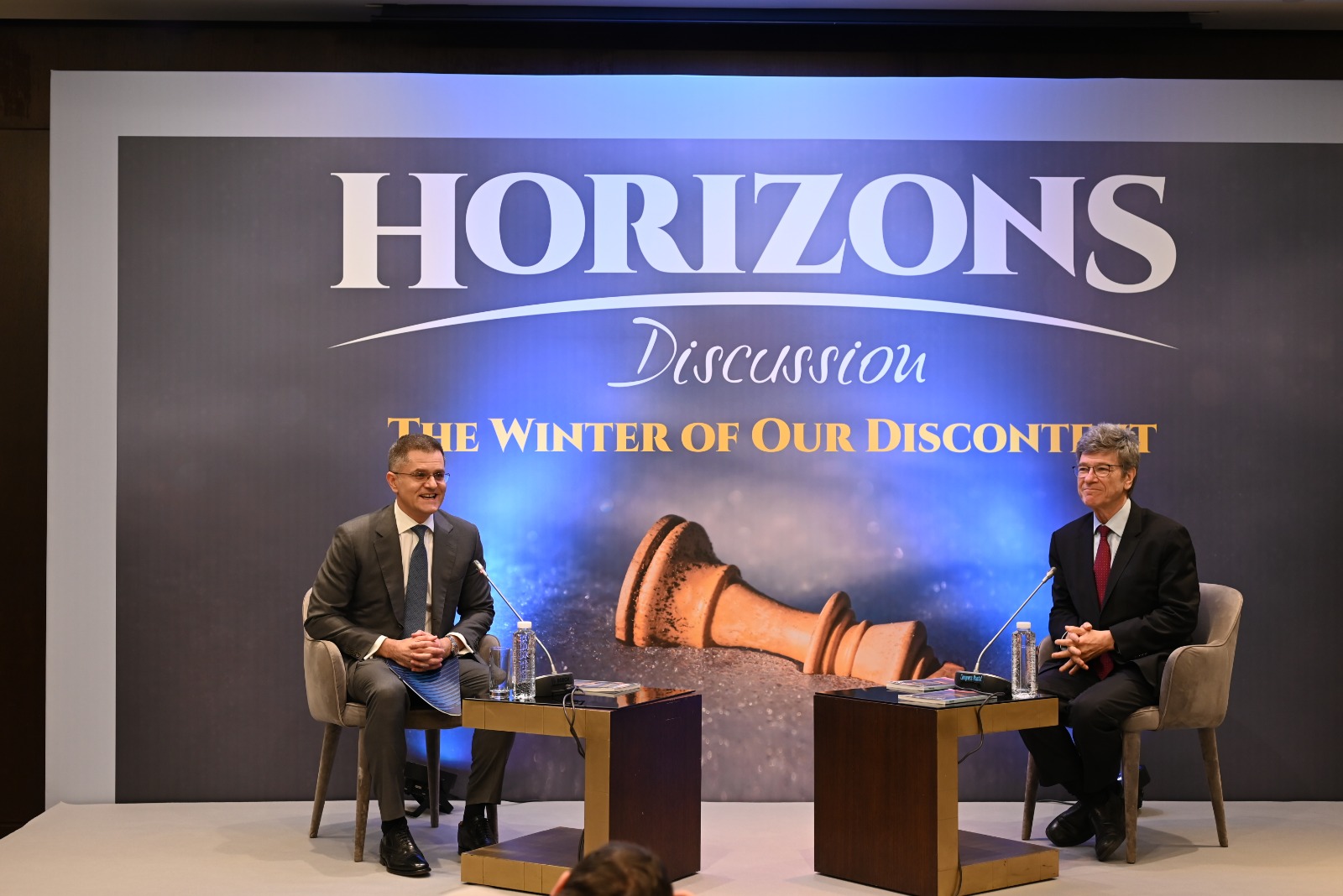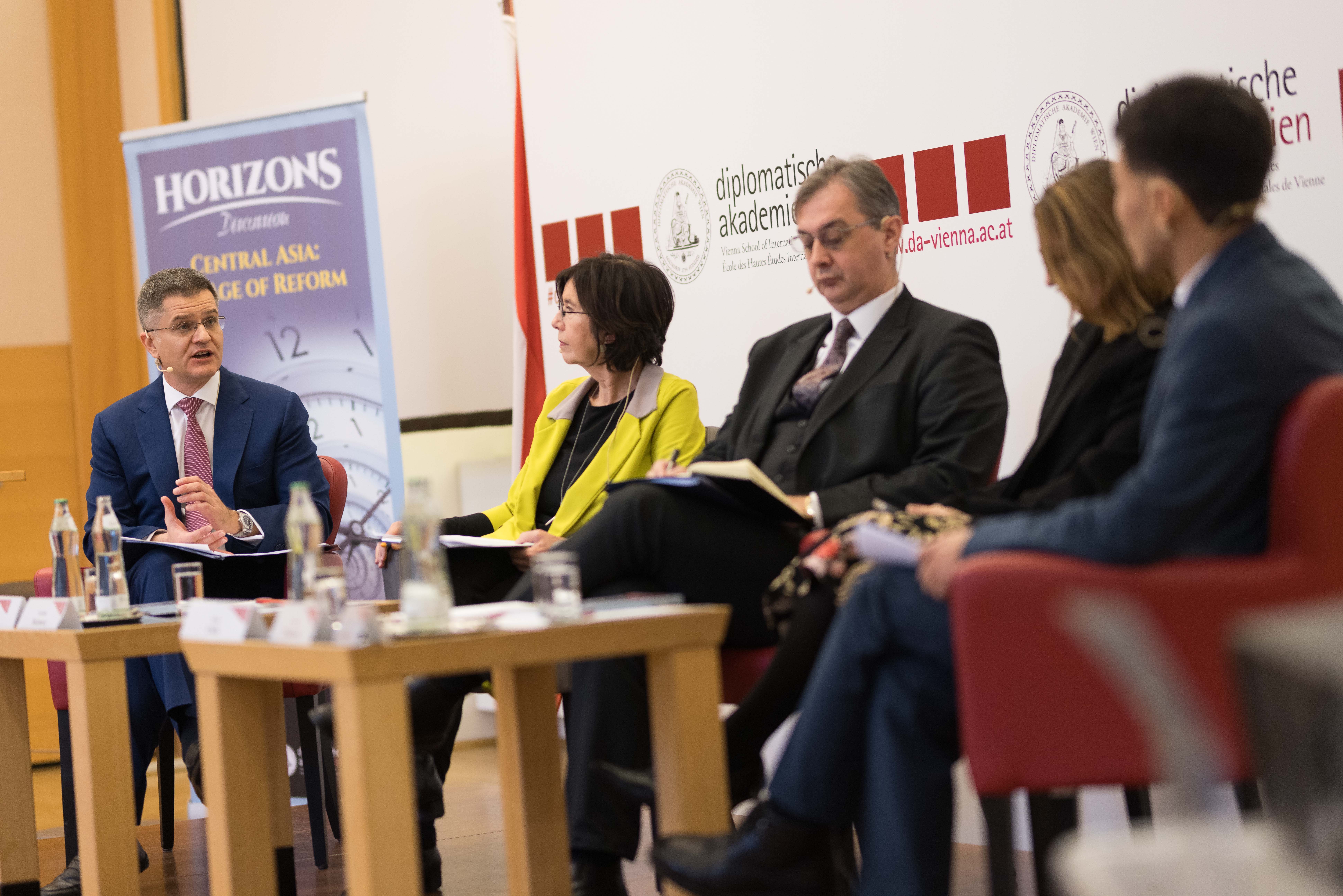Concept Paper
Silk Roads: Inspirations and Opportunities

The Center for International Relations and Sustainable Development (CIRSD), the Center for Strategic Research (SAM) of the Ministry of Foreign Affairs of the Republic of Turkey, and the Development Research Council (DRC) of the State Council of the People’s Republic of China are organizing an international conference in Istanbul, Turkey on 12 December 2014 to explore the strategic potential of the new Silk Roads concept.
The conference will bring together distinguished political figures, diplomats, academics, and other opinion-makers from a number of countries historically associated with Silk Roads, with a particular focus on participation from countries that form two of the most important termini of the projected new Silk Roads: the Balkans-Caucasus region and China.
Background
The ancient concept of the Silk Roads originated more than 2000 years ago and lasted more than 1500 years, entering into final stage of decline around the dawn of the European Industrial Revolution and the onset of colonialism.
The Silk Roads region traditionally encompassed western China, Southeast Asia and the Malay archipelago in the east, moving across the Central Asian steppe and the Caucasus in the north and the Indian subcontinent in the south, extending into Persia, the Arabian peninsula and the Fertile Crescent into Anatolia, the Red Sea basin, and East Africa, as well as the Balkans and other parts of the European continent.
For nearly two millennia, the cities and ports of this immensely diverse region were home to one of the most significant economic, intellectual and cultural exchange endeavors in human history. Trade in goods, services, people, technology and ideas flowed across thousands of kilometers by land and sea, producing win-win outcomes for all. In many ways, it was the precursor of the concept of globalization.
Several years ago, a number of ideas began to be put forward to revive the Silk Road concept, most notably by China’s President Xi Jinping.
In a landmark tour of Central Asian states in 2012 and in subsequent speeches, Xi proposed building a Silk Road Economic Belt and a complementary Maritime Economic Belt on the basis of five basic points: first, to strengthen policy coordination in managing development strategies; second, to improve road, rail, air and sea connectivity by opening up transportation channels from the Pacific to the Baltic and the eastern Mediterranean; third, to promote trade facilitation; fourth, to enhance monetary circulation, conduct transactions in local currencies and increase competitiveness in the global marketplace; and fifth, to strengthen people-to-people exchanges.
As envisioned, the new Silk Roads paradigm would create a vast network of land and sea corridors that would link three continents and aim to ultimately establish an open community of shared interests, responsibilities, and commitments to freer trade and integrated economic growth.
Format
The event will begin in the evening of 11 December 2014, with an invitation-only dinner for distinguished conference participants and invited guests featuring a high-level welcoming address. The conference itself will take place on 12 December 2014, and will consist of a high-level keynote segment and five interactive panel discussions, in line with the Conference Objectives as outlined below.
Conference Objectives
The conference will aim to address the following interrelated topics:
1. On Mutually Beneficial and Win-win Silk Roads (Trade &Investment): The core target and major prospect of the new Silk Roads is to promote the economic prosperity of the regions along the road, through strengthening policy communications, enhancing trade and investment facility, and expanding and deepening trade, investment and financial cooperation.
Issues to be discussed: How to identify matching points of economic interest and cooperation opportunities along the region? What institutional and policy barriers could obstruct investment expansion and trade cooperation? What measures should be taken to promote regional trade and economic cooperation? What cooperation framework and platforms should be established?
2. Interconnected Silk Roads (Infrastructures): Interconnected and unblocked infrastructures including railways, highways, airways, airports, harbors, and telecommunications are the major carriers of economic cooperation and cultural exchanges.
Issues to be discussed: What bottlenecks and weaknesses constrain interconnection? What are the challenges to infrastructure development? What sort of roadmaps and institutions should be established to secure common investment, construction, operation and sharing?
3. Open and Inclusive Silk Roads (Cultural exchange): Mutual understanding between peoples and building political trust are prerequisites of trade and economic cooperation.
Issues to be discussed: How important is it to develop an inclusive and open philosophy of the new Silk Roads to promote cultural exchange for shared progress? What areas are important to foster cultural exchanges (e.g. educational cooperation, cultural products exchange, tourism, etc.)? What are the emphases, challenges and channels of cultural exchange?
4. Sustainable Silk Roads (Environment and Ecosystem): There is an emerging consensus that developing countries cannot realize modernization simply by copying the industrialization models of developed countries. Innovative development modalities, coping with challenges posed by climate change and other environmental problems, and striving to achieve low carbon, green and environmentally friendly sustainable development are shared concerns facing the countries along the new Silk Roads.
Issues to be discussed: How can communication and coordination of development policies and shared experiences be promoted? How can the potentials of cooperation in technological breakthrough and R&D be effectively tapped?
5. Cooperation of Think Tanks along the Silk Roads: In order to construct harmonious, prosperous and sustainable new Silk Roads, it is advisable to give a stronger voice to think tanks in helping to overcome difficulties and challenges posed by the new Silk Roads construction. Think tanks can play important roles in innovation, conceptual design, decision-making consultation, coordination and communications. With the expertise and influence of think tanks on public opinion and governments, mutual understanding between states can be promoted to reduce the public doubts and confusion.
Issues to be discussed: In which areas should think tanks play more pronounced roles in the new Silk Roads construction and how to better play its role? How to strengthen communications and cooperation between think tanks?
Outcomes
A conference summary will be produced and will be uploaded on the websites of the organizers, as well as distributed to all relevant stakeholders. Video highlights will likewise be uploaded on the websites of the organizers as well as on commercial sites such as YouTube.
Parts of the proceedings will also be featured in a forthcoming issue of the CIRSD publication Horizons: Journal of International Relations and Sustainable Development, as well as in other printed media.
Program
Thursday, 11 December 2014
[Conrad Hotel, İstanbul]
19:00 –21:00
|
Gala Dinner (special location: Junior Ballroom)
Welcoming Remarks
• H.E. Mr. Mevlüt Çavuşoğlu, Foreign Minister of Turkey
|
Friday, 12 December 2014
8:30 – 10:30
|
Opening Ceremony and Keynote Addresses
Welcoming Written Message:
• H.E. Prof. Ahmet Davutoğlu, Prime Minister of Turkey
Opening Remarks:
• H.E. Mr. Vuk Jeremić, President for the Center for International Relations and Sustainable Development (CIRSD); former President of the UN General Assembly and Foreign Minister of Serbia
• Prof. Ali Resul Usul, Chairman, Center for Strategic Research of the Turkish Foreign Ministry (SAM)
• Prof. Burhanettin Duran, General Coordinator, Foundation for Political, Economic and Social Research (SETA)
• Mr. Yu Hongyang, Ambassador of China to Turkey
Keynote Addresses:
• Mr. Li Wei, Minister and President of the Development Research Council of the State Council of China (DRC) and Member of the CIRSD Board of Advisors
• H.E. Dr. Igor Lukšić, Deputy Prime Minister and Foreign Minister of Montenegro
|
10:30 – 10:45
|
Tea Break
|
10:45 – 12:15
|
Session I: Mutually Beneficial and Win-win Silk Roads
Moderator:
• Dr. Long Guoqiang, Member of DRC Leadership, Director General, General Office of DRC
Speakers:
• H.E. Mr. Mile Janakieski, Minister of Transport and Communications of Macedonia
• Dr. Zhao Jinping, Director General, Department of Foreign Economic Relations, DRC
• H.E. Mr. Dorjan Duçka, Deputy Minister of Energy and Industry of Albania
• Mr. Ruslan Rustamli, Head of Department for Cooperation with International Organizations of the Ministry of Economy and Finance of Azerbaijan
• Dr. Zhang Yuyan, Director General, Institute of World Economics and Politics, Chinese Academy of Social Sciences
|
12:15-13:30
|
Luncheon
|
13:30-14:45
|
Session II: Interconnected Silk Roads
Moderator:
• Assoc. Prof. Sadık Ünay, Director of Economic Research, SETA
Speakers: [maximum 10 minutes each]
• Mr. Ou Xiaoli, Deputy Director General, Department of Western Development, National Development and Reform Commission of China
• Dr. Farhad Mammadov, Director of the Center for Strategic Studies under the President of Azerbaijan
• Dr. Altay Atlı, Director of Asian Studies Center, Bogazici University, İstanbul
• Assoc. Prof. Ali Akkemik, Head of the Department of Economics, Kadir Has University
• Assoc. Prof. Hatice Karahan, Senior Researcher in Economics, SETA
|
14:45-16:00
|
Session III: Open and Inclusive Silk Roads
Moderator:
• Mr. Gu Jingqi, Chinese Consul General to Istanbul
Speakers: [maximum 10 minutes each]
• Dr. Sha Wutian, Deputy Director, Dunhuang Academy of China
• Dr. Akkan Suver, President, Marmara Group Foundation
• Dr. Zhai Kun, Professor, School of International Studies, Peking University
• Dr. Ebubekir Ceylan, Vice-President, Yunus Emre Cultural Institute of Turkey
• Dr. Predrag Simić, Professor of Political Science, University of Belgrade
|
16:00-17:15
|
Session IV: Sustainable Silk Roads
Moderator:
• Assoc. Prof. Murat Yeşiltaş, Director for Security Studies, SETA
Speakers: [maximum 10 minutes each]
• Mr. Hou Yongzhi, Director General, Department of Development Strategy and Regional Economy, DRC
• H.E. Amb. Süha Umar, Turkish Asian Strategic Research Center (TASAM)
• Dr. Nurullah Gür, Senior Researcher in Economics, SETA
• Prof. Ekrem Tatoglu, Head of the Department of International Trade, Bahcesehir University, İstanbul
• Mr. Ussal Sahbaz, Senior Researcher in Economics, Economic Policy Research Foundation of Turkey (TEPAV)
|
17:15-17:30
|
Tea Break
|
17:30-18:45
|
Session V: Cooperation of Think Tanks along Silk Roads
Moderator:
• Dr. Ufuk Ulutas, Director of Foreign Policy Research, SETA
Speakers: [maximum 10 minutes each]
• Dr. Long Guoqiang, Member of DRC Leadership, Director General, General Office of DRC
• Ak. Prof. Dr. Zvonimir Baletić, President of the Geoeconomic Forum, Croatia
• Dr. Cheng Guoqiang, Director General, Department of International Cooperation, DRC
• Dr. Patrick Ho, Deputy Chairman, China Energy Fund Committee (CEFC), Hong Kong
• Dr. Kılıç Buğra Kanat, Researcher in Foreign Policy, SETA
|
18:45-19:25
|
Concluding Remarks
Moderator:
• H.E. Mr. Miguel Ángel Moratinos Cuyaubé, former Foreign Minister of Spain and Honorary Chairman of the CIRSD Board of Advisors
Speakers: [maximum 10 minutes each]
• H. E. Mr. Shaukat Aziz, former Prime Minister of Pakistan and Member of the CIRSD Board of Advisors
• Dr. Peter Nolan, Director, Centre of Development Studies, University of Cambridge
• Zhang Junkuo, Vice President, DRC
|
Silk Roads: Inspirations and Opportunities
SUMMARY
THE Center for International Relations and Sustainable Development (CIRSD), in partnership with the Development Research Center (DRC) of the State Council of the People’s Republic of China, the Center for Strategic Research (SAM) of the Ministry of Foreign Affairs of the Republic of Turkey, and the Foundation for Political, Economic and Social Research (SETA), organized an international conference in Istanbul, which explored the strategic potential of the new Silk Roads concept.
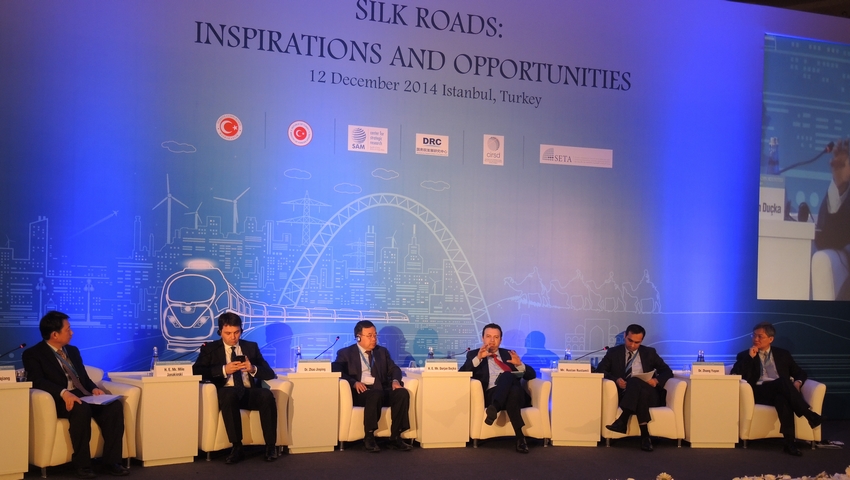
The event began on the evening of 11 December 2014, with an invitation-only dinner for distinguished conference participants and invited guests, featuring a high-level welcoming message from Turkish Foreign Minister Mevlüt Çavuşoglu. The actual conference, which was entitled Silk Roads: Inspirations and Opportunities, took place on 12 December 2014, and consisted of a high-level keynote segment and five interactive panel discussions.
The conference brought together distinguished political figures, diplomats, academics and other opinion-makers from a number of countries historically associated with Silk Roads, with a particular focus on participation from countries that form two of the most important termini of the projected new Silk Roads: the Balkans-Caucaus region and China.
In a written message, Turkey’s Prime Minister Ahmet Davutoglu expressed his full support for the conference and its organizers, stating that “the revival of the ancient Silk Roads is a civilizational project.”
At the opening of the conference, CIRSD President Vuk Jeremić stated that “the Silk Road vision aspires to change how we perceive our frontiers—to respect our borders fully as sovereign markers of territorial integrity, whilst opening them up to capital, goods, people, and technologies from across Euroasia and beyond.” He further added that “the One Road, One Belt vision could fundamentally transform the politics and economics of globalization in the 21st century.”
Jeremić concluded that “in order to make our part of the world a global center of attraction, we will need to work more closely together—as think-tanks, societies, businesspeople, and governments—to ensure we make the right strategic decisions, and so propel our region forward through win-win cooperation for sustainable prosperity.”
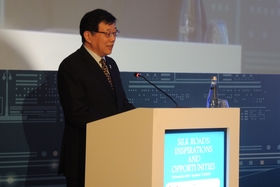 During the keynote segment, Minister Li Wei, President of the DRC and a member of the CIRSD Board of Advisors, stated that “the Silk Road carries forward the ideas of openness, cooperation, mutual learning and win-win results. It is a pioneering endeavor for creating a thoroughfare for frequent exchanges and connectivity between people in different countries. It brings a better life to the people in the countries along the road, and also advances the civilization progress of human society.”
During the keynote segment, Minister Li Wei, President of the DRC and a member of the CIRSD Board of Advisors, stated that “the Silk Road carries forward the ideas of openness, cooperation, mutual learning and win-win results. It is a pioneering endeavor for creating a thoroughfare for frequent exchanges and connectivity between people in different countries. It brings a better life to the people in the countries along the road, and also advances the civilization progress of human society.”
Minister Li underlined that in the process of building modern Silk Roads, characterized by prosperity, inclusiveness and sustainability, think-tanks should shoulder the bounden duty. He added that in an era characterized by increasingly complicated economic and social relations, “policies will lack scientific justification and feasibility without consulting and research done by the think-tanks.” Minister Li took this opportunity to advance a proposal to institutionalize cooperation between think-tanks through the establishment of a Silk Road Think-tank Network Initiative.
Montenegro’s Deputy Prime Minister and Foreign Minister Igor Lukšić underlined that “the revival of the Silk Road concept might prove an opportunity for linking the Western Balkans with distant countries and various regions along a more than 7,000-km-long way.” He added that “it is a must for the governments of Western Balkan countries to work closely together in order to provide for a better platform for economic development and prosperity for their nations, in order to be able to contribute to initiatives such as the Silk Road.”
The remainder of the conference consisted of five panel discussions and featured remarks by highly-respected academics and public policy experts.
The first panel discussion, entitled “Mutually Beneficial and Win-win Silk Roads,” revolved around the following questions: How to identify matching points of economic interest and cooperation opportunities along the region? What institutional and policy barriers could obstruct investment expansion and trade cooperation? What measures should be taken to promote regional trade and economic cooperation? What cooperation framework and platforms should be established?
Panelists suggested that the core target and major prospect of the new Silk Roads is to promote the economic prosperity of the regions along the road, through strengthening policy communications, enhancing trade and investment facility, and expanding and deepening trade, investment and financial cooperation.
The second panel discussion, entitled “Interconnected Silk Roads,” explored the following issues: What bottlenecks and weaknesses constrain interconnection? What are the challenges to infrastructure development? What sort of roadmaps and institutions should be established to secure common investment, construction, operation, and sharing?
Panelists emphasized that interconnected and unblocked infrastructures including railways, highways, airways, airports, harbors, and telecommunications, are the major carriers of economic cooperation, and cultural exchanges.
The third panel discussion, entitled “Open and Inclusive Silk Roads,” tried to provide answers to the following issues: How important is it to develop an inclusive and open philosophy of the new Silk Roads to promote cultural exchange for shared progress? What areas are important to foster cultural exchanges (e.g. educational cooperation, cultural products exchange, tourism, etc.)? What are the emphases, challenges, and channels of cultural exchange?
Panelists stressed that mutual understanding between peoples and building political trust are prerequisites for trade and economic cooperation.
The fourth panel discussion, entitled “Sustainable Silk Roads,” focused on the following questions: How can communication and coordination of development policies and shared experiences be promoted? How can the potentials of cooperation in technological breakthrough and R&D be effectively tapped?
Panelists concluded that there is an emerging consensus that developing countries cannot realize modernization simply by copying the industrialization models of developed countries. Innovative development modalities, coping with challenges posed by climate change and other environmental problems, and striving to achieve low carbon, green, and environmentally friendly sustainable development, are shared concerns facing the countries along the new Silk Roads.
The fifth panel discussion, entitled “Cooperation of Think-tanks along Silk Roads,” revolved around the following questions: In which areas should think-tanks play more pronounced roles in the new Silk Roads construction, and how can they better play their role? How do we strengthen communications and cooperation be-tween think-tanks?
Panelists underlined that, in order to construct harmonious, prosperous and sustainable new Silk Roads, it is advisable to give a stronger voice to think-tanks to help overcome difficulties and challenges posed by the new Silk Roads construction. Think-tanks can play important roles in innovation, conceptual design, decision-making consultation, coordination, and communications. With the expertise and influence of think-tanks on public opinion and governments, mutual understanding between states can be promoted to reduce public doubt and confusion.
Concluding remarks were made by Miguel Ángel Moratinos Cuyabe, former Foreign Minister of Spain and the Honorary Chairman of the CIRSD Board of Advisors; Shaukat Aziz, former Prime Minister of Pakistan and a member of the CIRSD Board of Advisors; Peter Nolan, director of the Centre for Development Studies at the University of Cambridge; and Zhang Junkuo, Vice President of the DRC.
One of the main conclusions to the conference was that the new Silk Roads paradigm, by creating a vast network of land and sea corridors that would link three continents, aims to ultimately establish an open community of shared interests, responsibilities, and commitments to freer trade and integrated economic growth.



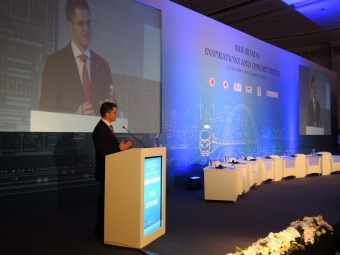
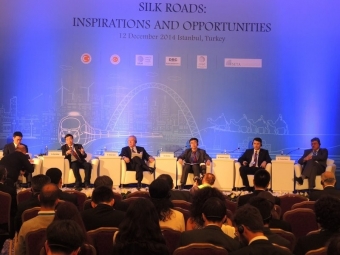
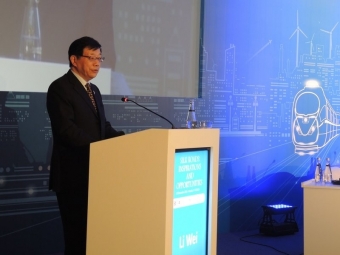
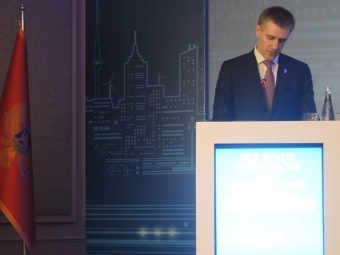
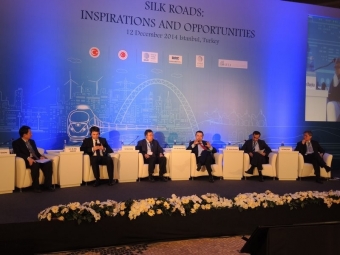
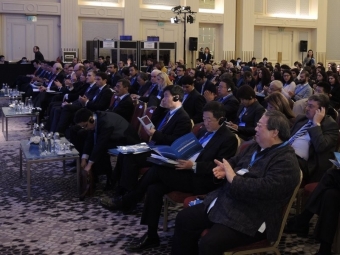

 During the keynote segment, Minister Li Wei, President of the DRC and a member of the CIRSD Board of Advisors, stated that “the Silk Road carries forward the ideas of openness, cooperation, mutual learning and win-win results. It is a pioneering endeavor for creating a thoroughfare for frequent exchanges and connectivity between people in different countries. It brings a better life to the people in the countries along the road, and also advances the civilization progress of human society.”
During the keynote segment, Minister Li Wei, President of the DRC and a member of the CIRSD Board of Advisors, stated that “the Silk Road carries forward the ideas of openness, cooperation, mutual learning and win-win results. It is a pioneering endeavor for creating a thoroughfare for frequent exchanges and connectivity between people in different countries. It brings a better life to the people in the countries along the road, and also advances the civilization progress of human society.”
